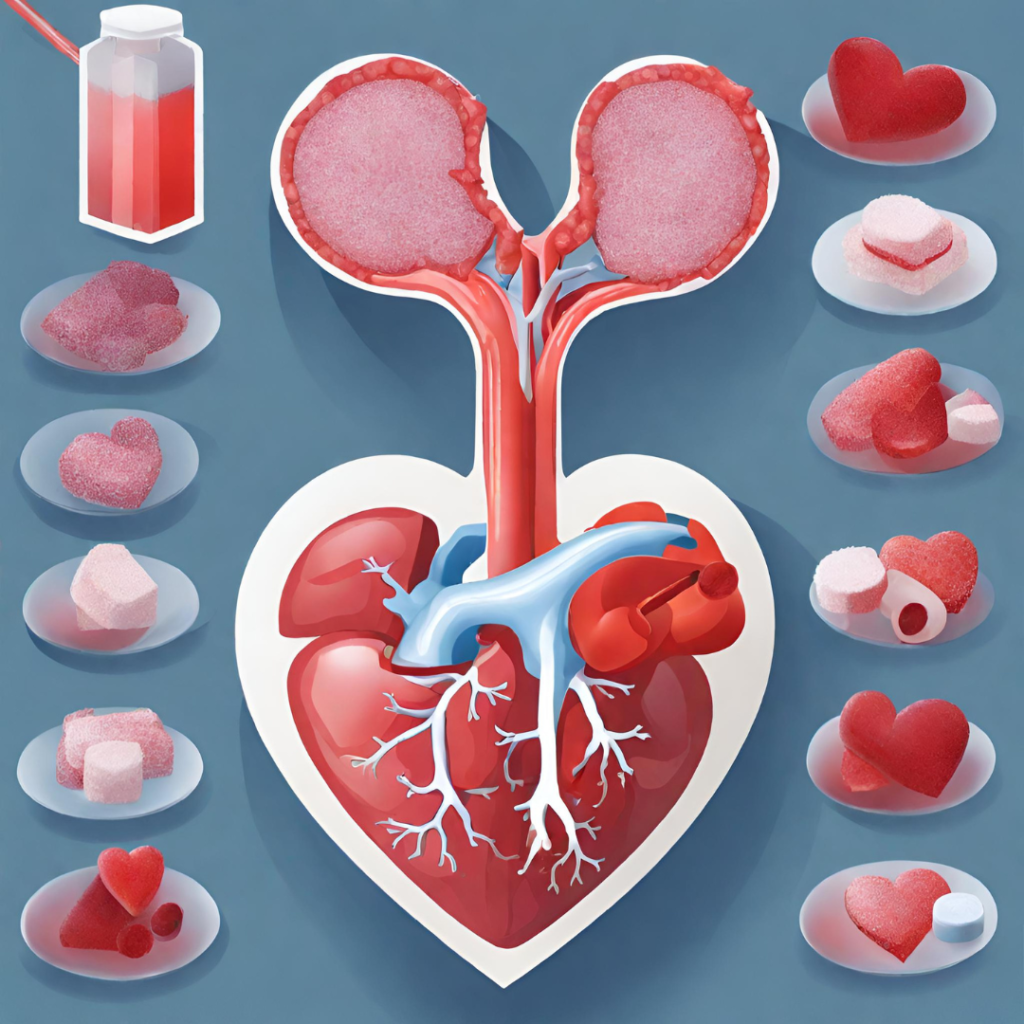Great Health Great Fitness
“Sugars: The Silent Plague of Health”
In the modern world, amidst the allure of sweet indulgence, lies a silent threat to our well-being - sugars. These seemingly innocent additions to our diet wreak havoc on our health, often unnoticed until it's too late. From hidden sugars in processed foods to the temptations of sugary treats, they stealthily undermine our efforts towards a healthier lifestyle. It's time to recognize sugars for what they truly are - the silent plague of health, and take decisive steps towards minimizing their impact on our lives.

Introduction to Sugars and Health:
Sugars has become a pervasive part of the modern diet, found in numerous processed foods and beverages. Its ubiquitous presence in our food supply has contributed to a significant increase in sugar consumption worldwide. However, the excessive intake of sugar has been linked to a range of health issues, ranging from obesity and type 2 diabetes to heart disease and mental health disorders. In this comprehensive guide, we will explore the multifaceted impact of sugar on health and well-being, delving into the science behind sugar metabolism, the health risks associated with excessive consumption, and practical strategies for reducing sugar intake and promoting better health outcomes.
It has entrenched itself deeply within the fabric of the modern diet, infiltrating an extensive array of processed foods and beverages. Its ubiquitous presence in our food supply has fueled a dramatic surge in sugar consumption on a global scale. However, this widespread indulgence in sugar-laden products has been irrevocably linked to a myriad of health complications, spanning from the rampant rise of obesity and the onset of type 2 diabetes to the insidious infiltration of heart disease and the insidious impact on mental health.
In this comprehensive guide, we embark on an enlightening exploration into the multifaceted impact of sweet on human health and overall well-being. We embark on a journey deep into the intricate mechanisms of sugar metabolism, unraveling the complex interplay between sugar and the body’s physiological processes.
Furthermore, we meticulously dissect the extensive catalogue of health hazards associated with the excessive consumption of sweet-rich fare, illuminating the detrimental consequences it can impose on various bodily systems and functions. Moreover, armed with a wealth of evidence-based knowledge, we equip readers with a formidable arsenal of practical strategies designed to curb sugar intake and foster the cultivation of healthier dietary habits. Through this journey of discovery and empowerment, our goal is to empower individuals to make informed choices regarding their dietary behaviors, ultimately charting a course towards enhanced health and vitality.
Understanding Different Types of Sugar:
To fully comprehend the impact of sweet on health, it’s essential to understand the different types of Sugars present in our diets. It comes in various forms, including sucrose, fructose, and glucose. Sucrose, commonly known as table Sugars, is a disaccharide composed of glucose and fructose molecules bonded together. Fructose, found naturally in fruits and honey, is metabolized differently than glucose, primarily in the liver. Glucose, on the other hand, is the body’s primary source of energy and is found in starchy foods like bread, pasta, and potatoes.
The Science Behind Sugar’s Impact on Health:

When consumed, it is rapidly absorbed into the bloodstream, leading to a spike in blood glucose levels. This spike triggers the release of insulin, a hormone produced by the pancreas that helps cells absorb glucose for energy. However, frequent spikes in blood can lead to insulin resistance, a condition in which the body’s cells become less responsive to insulin’s effects. Over time, insulin resistance can progress to type 2 diabetes, a chronic condition characterized by high blood Sugars levels and impaired insulin function.
Health Risks Associated with Excessive Sugar Consumption:
Excessive sweet consumption has been linked to a myriad of health risks, including weight gain, obesity, type 2 diabetes, heart disease, and dental decay. Sugary beverages, such as soda, fruit juice, and energy drinks, are particularly concerning due to their high content and low nutrient density. Consuming these beverages regularly can contribute to weight gain and metabolic syndrome, a cluster of conditions that increase the risk of heart disease, stroke, and type 2 diabetes.
Sugar and Weight Gain:
One of the most well-established links between sweet and health is its role in weight gain and obesity. It is high in calories but low in essential nutrients, making it easy to overconsume without feeling full. Furthermore, excessive Sugars intake can lead to insulin resistance, a condition in which the body’s cells become less responsive to insulin’s effects, promoting fat storage and weight gain, especially around the abdomen.
Sugar and Heart Health:

Diets high in sweet have been associated with an increased risk of heart disease and stroke. Excessive sugar consumption can elevate triglyceride levels, lower HDL (good) cholesterol, and increase blood pressure, all of which are risk factors for cardiovascular disease. Additionally, consuming sugary beverages has been linked to an increased risk of heart disease mortality, independent of other dietary and lifestyle factors.
Sugar and Dental Health:
Sugars is a primary driver of dental decay, as it provides an energy source for harmful bacteria in the mouth to proliferate. These bacteria produce acids that erode tooth enamel, leading to cavities and gum disease. The frequency and duration of sugar exposure play a significant role in dental decay risk, with sugary snacks and beverages being particularly detrimental to oral health.
Sugar and Mental Health:
Emerging research suggests a link between Sugars consumption and mental health disorders such as depression and anxiety. Diets high in sweet and processed foods have been associated with an increased risk of mood disorders and cognitive decline. Furthermore, excessive sweet intake can lead to fluctuations in blood Sugars levels, which may contribute to mood swings, irritability, and fatigue.
Sugar and Diabetes:
Excessive sweet consumption is a major contributor to the global rise in type 2 diabetes. Over time, high blood sugar levels can impair insulin function, leading to insulin resistance and eventually diabetes. Individuals with diabetes must carefully monitor their carbohydrate intake, including sugars, to maintain stable blood sugar levels and prevent complications.
Sugar Addiction:

Understanding the Cravings: it has addictive properties that can hijack the brain’s reward system, leading to cravings and compulsive consumption. Research has shown that sugar activates the same brain regions as addictive drugs like cocaine and heroin, leading to feelings of pleasure and reward. Breaking free from sugar addiction often requires a gradual reduction in intake and a focus on whole, nutrient-dense foods.
How to Reduce Sugar Intake:
Reducing sweet intake is a critical step towards improving overall health and well-being. Fortunately, there are several practical strategies for cutting back on sugar and making healthier dietary choices. Reading food labels carefully can help identify hidden sources of sugar in processed foods and beverages. Opting for whole, unprocessed foods like fruits, vegetables, whole grains, and lean proteins can reduce overall sugar intake while providing essential nutrients and fiber.
Sugar Substitutes: Are They Safe?
Artificial sweeteners and sugar substitutes are often marketed as healthier alternatives to sugar, offering the sweetness of sugar with fewer calories. While these sweeteners may be beneficial for individuals looking to reduce their calorie intake or manage blood sugar levels, some research suggests they may have adverse health effects. For example, artificial sweeteners like aspartame and sucralose have been associated with changes in gut microbiota composition, which may impact metabolic health.
Hidden Sources of Sugar in the Diet:
Sugar can lurk in unexpected places in the diet, including condiments, sauces, and packaged snacks. Being mindful of hidden sources of sugar and opting for whole, minimally processed foods can help reduce overall sugar intake and promote better health outcomes. Reading food labels carefully can help identify added sugars and make informed choices about which foods to include in the diet.
Practical Tips for Cutting Back on Sugar:
Reducing sugar intake doesn’t mean sacrificing taste or enjoyment. There are plenty of delicious, nutrient-rich foods and beverages that can satisfy a sweet tooth without the negative health effects of added sugars. Experimenting with natural sweeteners like honey, maple syrup, or stevia can add sweetness to recipes without the need for refined sugars. Additionally, incorporating more fruits and vegetables into meals can naturally enhance sweetness while providing essential vitamins, minerals, and fiber.
Sugar-Free Recipes and Meal Ideas:
Embracing a sugar-free lifestyle doesn’t mean giving up delicious meals and treats. There are countless recipes and meal ideas available that are free from added sugars, allowing individuals to enjoy flavorful and satisfying meals without compromising their health. From breakfast options like overnight oats and smoothie bowls to savory dinner recipes like stir-fries and salads, there are endless possibilities for creating sugar-free meals that nourish the body and delight the taste buds.
Conclusion:
Empowering Healthier Habits: In conclusion, reducing sugar intake is a crucial step towards improving overall health and well-being. By understanding the risks associated with excessive sugar consumption and implementing practical strategies for cutting back, individuals can take control of their health and embark on a path towards a happier, healthier life. Making small changes to dietary habits, such as choosing whole, minimally processed foods and opting for natural sweeteners, can have a significant impact on long-term health outcomes. By prioritizing nutrient-dense foods and minimizing added sugars, individuals can nourish their bodies, support optimal health, and thrive in all aspects of life.
Through the implementation of incremental adjustments to dietary patterns, such as the deliberate selection of wholesome, minimally processed foods and the preference for natural sweeteners over their refined counterparts, individuals can wield immense influence over their long-term health outcomes. By embracing a steadfast commitment to prioritizing nutrient-rich fare and mitigating the consumption of added sugars, individuals fortify their bodies with the sustenance needed to thrive, enabling them to radiate vitality and flourish across all dimensions of life.
In essence, by harnessing the transformative power of informed choices and intentional actions, individuals unlock the boundless potential to nurture a state of well-being that transcends mere physical health, ultimately embarking on a journey towards a life imbued with vitality, resilience, and unwavering vitality. For More Information you can check our blogs “The Hidden Health Risks of Plastic Surgery: Unveiling Potential Complications and Disease Associations”.
